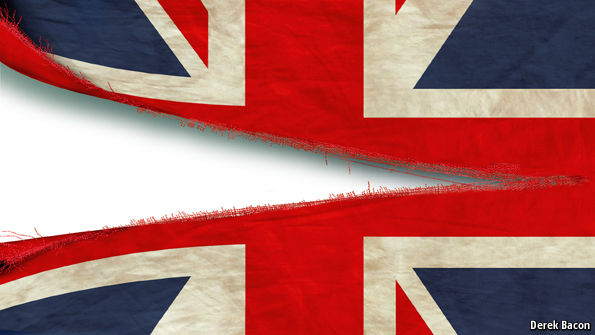How quickly the unthinkable became the irreversible. A year ago few people imagined that the legions of Britons who love to whinge about the European Union—silly regulations, bloated budgets and pompous bureaucrats—would actually vote to leave the club of countries that buy nearly half of Britain’s exports. Yet, by the early hours of June 24th, it was clear that voters had ignored the warnings of economists, allies and their own government and, after more than four decades in the EU, were about to step boldly into the unknown.
The tumbling of the pound to 30-year lows offered a taste of what is to come. As confidence plunges, Britain may well dip into recession. A permanently less vibrant economy means fewer jobs, lower tax receipts and, eventually, extra austerity. The result will also shake a fragile world economy. Scots, most of whom voted to Remain, may now be keener to break free of the United Kingdom, as they nearly did in 2014. Across the Channel, Eurosceptics such as the French National Front will see Britain’s flounce-out as encouragement. The EU, an institution that has helped keep the peace in Europe for half a century, has suffered a grievous blow.
Managing the aftermath, which saw the country split by age, class and geography, will need political dexterity in the short run; in the long run it may require a redrawing of traditional political battle-lines and even subnational boundaries. There will be a long period of harmful uncertainty. Nobody knows when Britain will leave the EU or on what terms. But amid Brexiteers’ jubilation and Remain’s recriminations, two questions stand out: what does the vote mean for Britain and Europe? And what comes next?
Read More at: The Economist

No comments:
Post a Comment